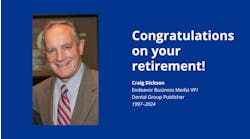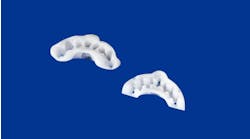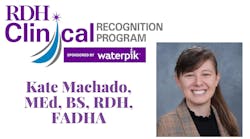A Peer-Reviewed Publication Written by Michael Wahl, DDS
Abstract
Antithrombotic medications including anticoagulants like warfarin (Coumadin®) and antiplatelet agents like aspirin are used by millions of dental patients to prevent various thrombotic complications including stroke or heart attack. Dentists must weigh the risks of postoperative bleeding in patients whose antithrombotic medications are continued versus the risk of thromboembolic complications if antithrombotic medications are interrupted for dental procedures. The dental and medical literature shows only minimal risk for bleeding complications in patients whose anticoagulation or antiplatelet medication is continued for dental surgery, and if bleeding complications occur, they can usually be easily controlled with local measures for hemostasis. The literature also shows a small but significant risk of catastrophic or fatal embolic complications in patients whose anticoagulation or antiplatelet medications are interrupted for dental procedures. There is usually no valid reason to interrupt therapeutic levels of continuous anticoagulation or antiplatelet medications for dental surgery with local measures available for hemostasis.
Educational Objectives:
At the end of this self-instructional educational activity, the participant will be able to:
1. Describe the relative risks of bleeding complications in patients on continuous antithrombotic medications such as warfarin and aspirin undergoing dental surgery.
2. Describe the relative risks of thromboembolic complications in patients whose continuous antithrombotic medications are interrupted for dental procedures.
3. Describe the purpose of physician consultation in dentistry.
Author Profile
Michael Wahl, DDS practices general dentistry in Wilmington, Delaware and received his undergraduate and dental degrees from Case Western Reserve University. He has published over 50 articles in many dental and medical journals and lectured at many major national and international meetings on dental treatment of medically compromised patients, amalgam and composite, and practice management, among other topics. He is a part-time assistant attending dentist at Christiana Care Health System. He can be reached at [email protected] .
To view this course in its entirety, please click here.
Past RDH Issues





